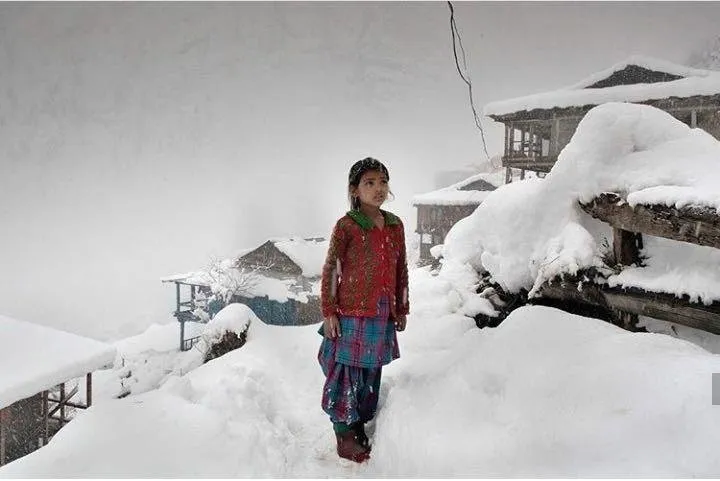A girl stares at the mountain after a huge snowfall left the villages in the valley without electricity for over two months. Despite a change of approach internationally on the ‘ war on drugs ‘. Debate on legalization of cannabis is a taboo in india. 
“They shall Never die” is a long term-project that explore the contradictions of prohibition in india. Thousands of familes in the Indian himalayes survive on the traditional production of hash and its illegal trade. Cannabis indica, from which a precious resin called charas is manually extracted,grows wild throughout the Himalayas, making it extremely difficult for the authorities to curb the illegal production and track back to the farmers.
The use of plant in india, which dates back to the scared Veda’s texts, has been part of religious rituals and festivals for centuries. To comply with international drug treaties, in 1985 India passed a stringent law on narcotic- a mere result of international pressure due to global War on drugs- that led to criminalization of cannabis , without actually curbing the illegal production.
Straddling between traditions and prohibition, cannabis farming has enabled many families under the poverty line and with ni alternative livelihoods to escape hunger. Many of these farmers have never grown anything legal in their life: they consider charas as a gift of god, to them , to their land. Cultivation, production, use, context, everything is imbued with spirituality and religion. Yet today , it’s a lot about business. The title refers to a local saying, charsi kabhi na marsi ( charas- makers shall never die ).
Thanks for reading
Must follow me @sawrdjr
And upvote my post